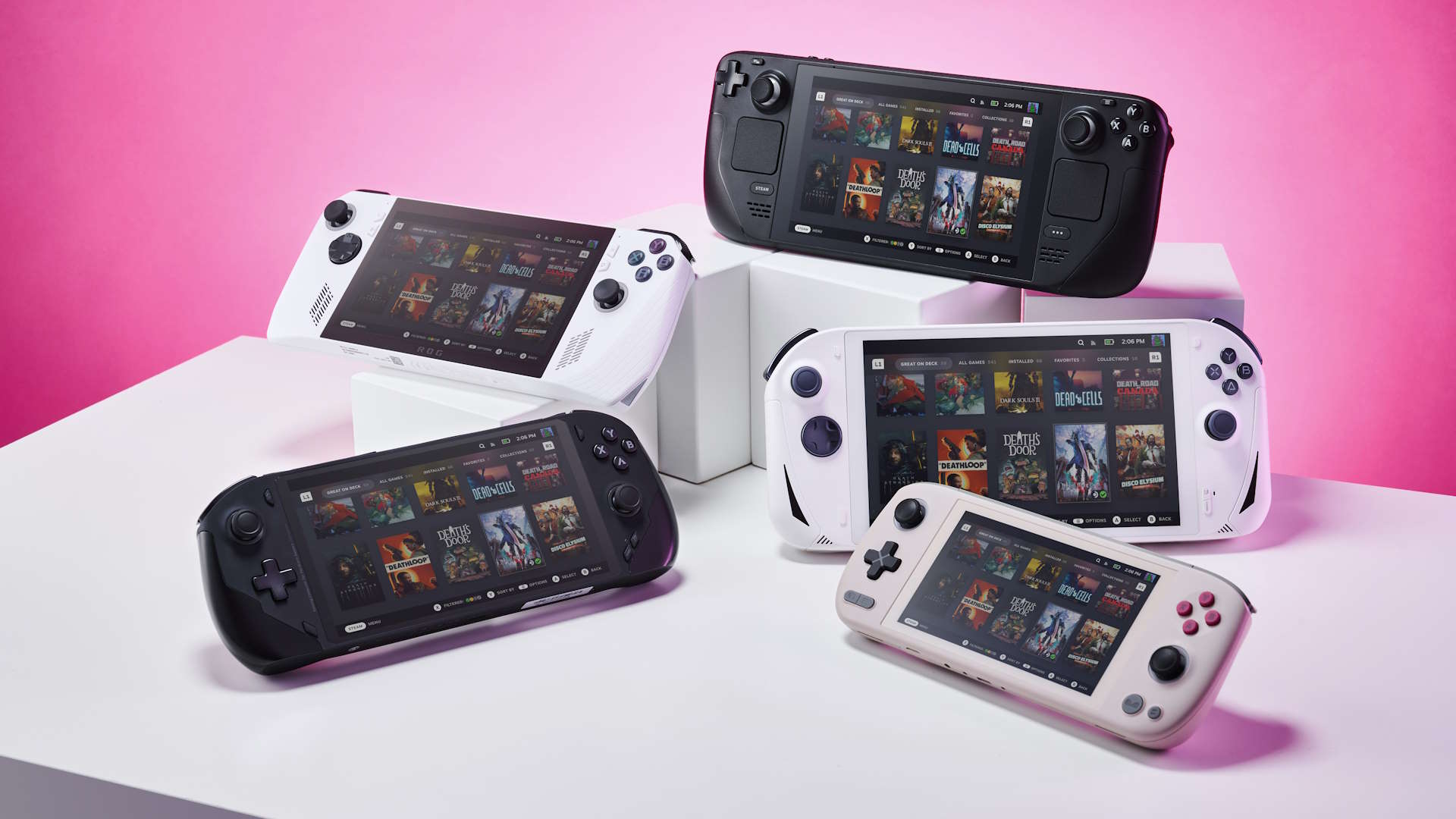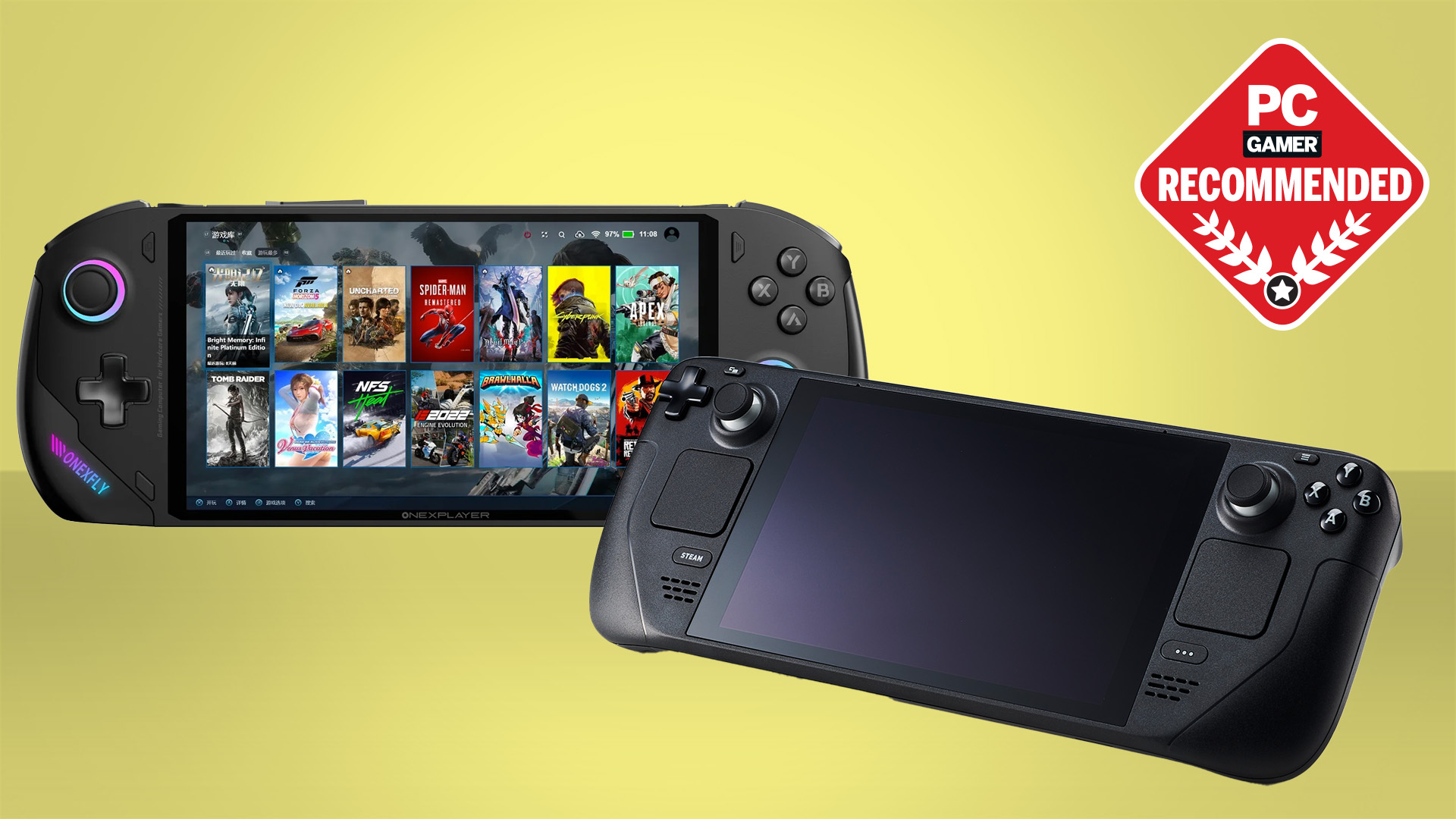
Phil Spencer really likes his Lenovo Legion Go. That's why he lists everything he'd like to see it do differently. CEOs, eh? To the surprise of absolutely no one Spencer would like to see a handheld that's more like an Xbox—all his games, saves and friends easily accessed within the same software. But what is surprising is that his comments aren't just about building some handheld Xbox—though he would also like one of those—he'd like to see Windows-based handhelds from all manufacturers be more Xbox-like.
"I like the fact that Valve, Lenovo, and Asus went out and innovated in a new form factor," Spencer says in an interview with Polygon at GDC. "And I will say that when I’m playing on those devices, it almost feels more like a console than a PC—nine times out of 10.
"The things that usually frustrate me are more Windows-based than device-based. Which is an area I feel some ownership of. Like, I want to be able to log in with a controller."
I'm right with you there, Spencer. Most handheld gaming PCs run Windows but the OS isn't the best to navigate on a smaller screen. Some handheld gaming PCs deal with Windows 11 better than others, in large part thanks to custom-built overlay applications. That said it's usually best to plug in a mouse and keyboard to do anything on the desktop with aplomb.
The exception to the rule is the Steam Deck, which comes with an entire launcher that mostly sits in front of the Linux desktop that actually powers it. I get the feeling that's the sort of concept that Spencer would like to introduce with Xbox.
"I want my Lenovo Legion Go to feel like an Xbox," Spencer says. "Forget about the brand. More like: Are all of my games there? Do all my games show up with the save [files] that I want?
"...I want to be able to boot into the Xbox app in a full screen but in a compact mode," Spencer continues.
The idea, to infer a whole lot from Spencer's comments, is to loosely offer a unified software experience across Windows-based handheld gaming PCs. That's to say, you boot up an ROG Ally 2 or Legion Go 2 (neither are confirmed, don't get excited) and you're greeted with the same handheld-friendly interface and gaming library. Sort of like Steam does with Big Picture Mode, which has been unified across both Steam Deck and the Steam desktop application. Though it's more like Little Picture Mode on the former.
Though presumably Spencer doesn't mean locking any console in to the Xbox ecosystem entirely—the whole point of these PC handhelds is that they're tiny PCs. The fact it's not a console is very important. A PC handheld reaps the benefits of a wide selection of games available on it and isn't tied into one storefront.

Want a handheld but need to know what's out there first? Here's our guide to the best handheld gaming PC to buy right now. We've tested heaps of the things to bring you an informed decision on the best of the bunch.
I wouldn't fret the details just yet. This doesn't appear much more than an idea percolating within Spencer's head right now, among many other things.
"I’ve got my list of things we should go do."
I imagine other things on Spencer's list include the next-generation Xbox and how Microsoft goes about competing more with Sony's first-party games. I'm all about the hardware but even I feel Microsoft needs to focus on the games to really lure in the punters for its next-gen kit. Spencer suggests that the Xbox team are looking into different form factors, including handheld—whatever will help it to find new players for Xbox.
Xbox isn't the only company trying to plonk itself at the centre of every handheld. Just last week we saw Playtron pitching its own handheld software—a proposal is to ditch the biggest names in gaming and offer open access to all. Valve also has the jump on both companies with SteamOS, though that's still only officially on the Steam Deck. Valve product manager Lawrence Yang says SteamOS is still planned to come to other handhelds and beyond to other devices in due course.







